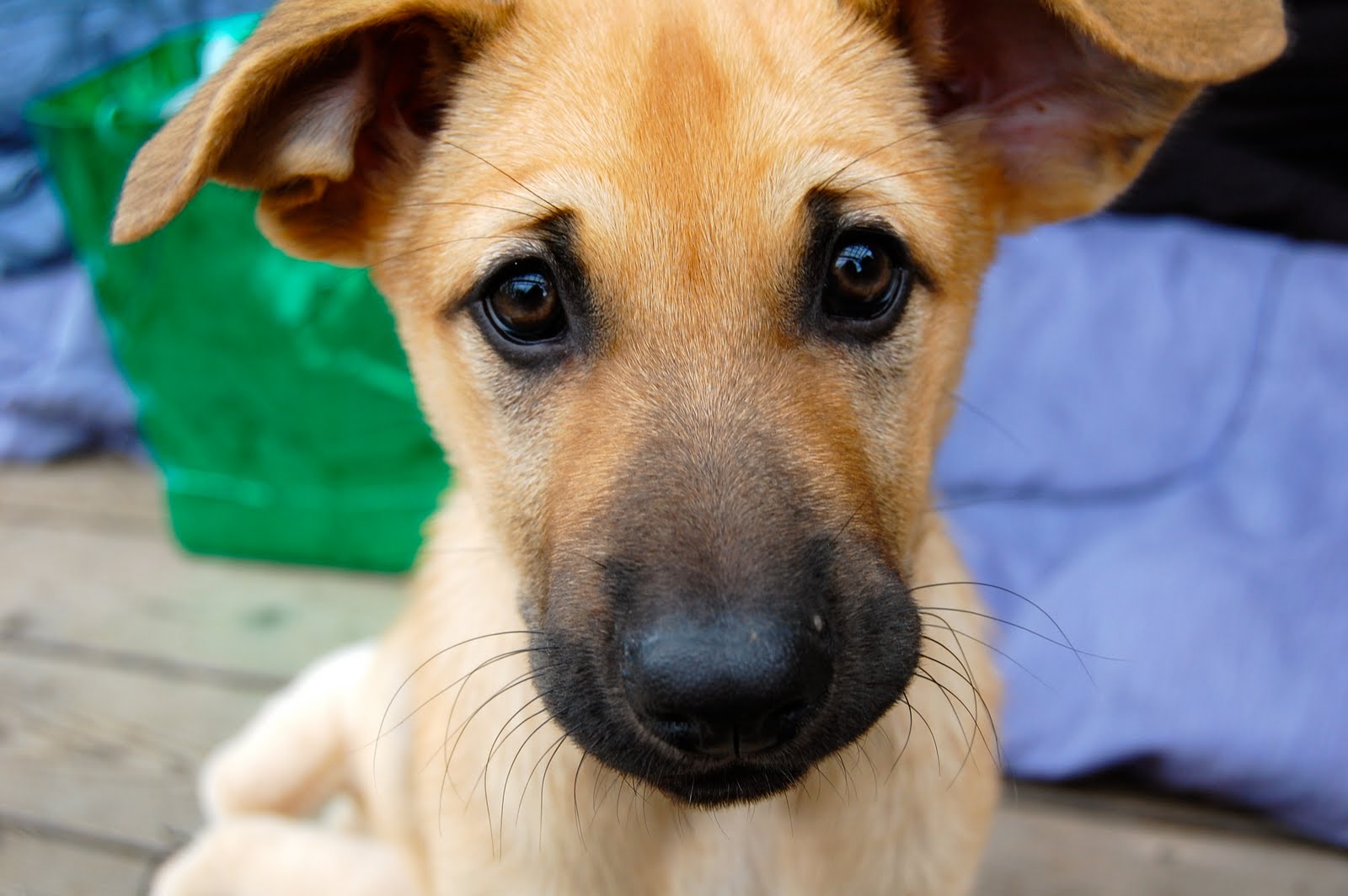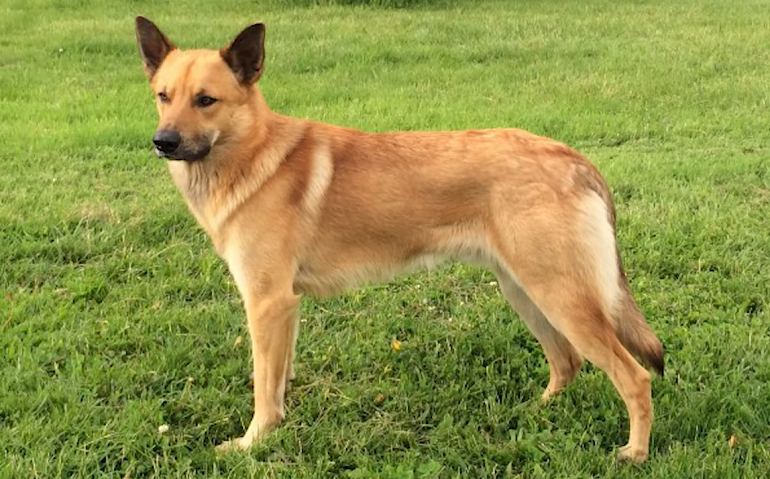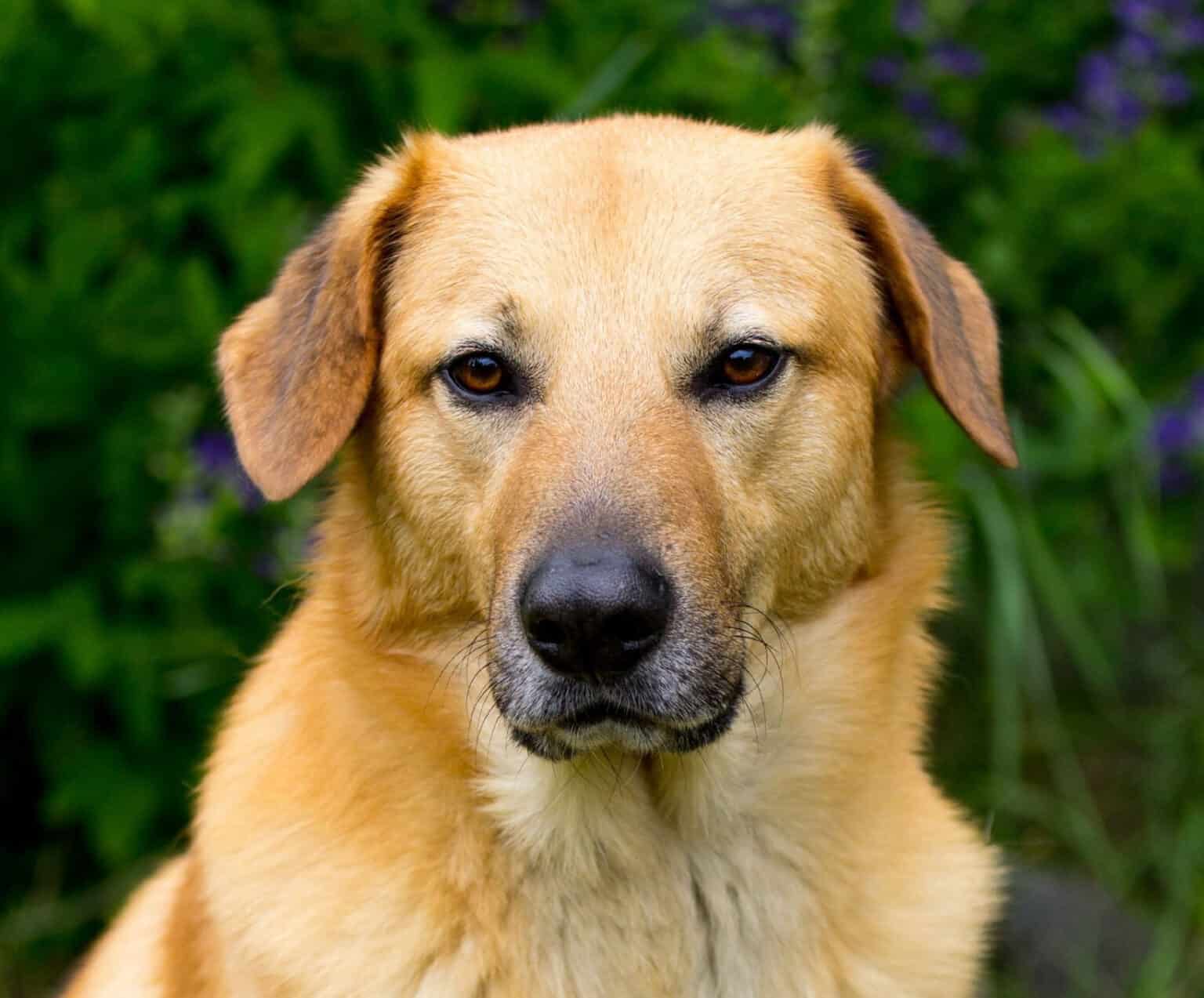
The Chinook is a rare American breed developed in the early 20th century by explorer Arthur Treadwell Walden of New Hampshire. Walden, a polar adventurer and dog driver, aimed to create the ideal sled dog: one that was strong, fast, intelligent, and friendly.
In 1917, Walden achieved his goal by crossing a mastiff-type farm dog with Husky-type sled dogs, resulting in a tawny-colored male named “Chinook”, who would become the foundation of the breed. The Chinook gained fame for its work in polar expeditions, and later as a versatile working dog on farms and with search-and-rescue teams.
Despite their utility and temperament, Chinooks nearly vanished in the 20th century. By the 1960s, only a handful remained. Thanks to the dedication of a few breeders, the Chinook was preserved, and today it’s recognized by the American Kennel Club (AKC) and the United Kennel Club (UKC).
The Chinook is one of the rarest dog breeds in the world, with a small but passionate following. It is especially popular among working dog enthusiasts, families, and those seeking a calm, friendly alternative to high-strung sled dogs.
Its rarity means it’s still relatively unknown outside specialized dog circles, but its reputation for gentle temperament, trainability, and endurance continues to grow.
The Chinook is a well-balanced, medium-to-large dog with a graceful yet powerful build, suited for both work and companionship.
• Coat: Medium-length double coat, slightly coarse, with a soft undercoat for insulation.
• Color: Always tawny, ranging from pale honey to deep reddish-gold. Some may have black shading on muzzle or ears.
• Size:
o Height: 21–27 inches (53–69 cm)
o Weight: 50–90 lbs (23–41 kg)
• Head & Expression: Broad head with a moderate stop, almond-shaped brown eyes, and a gentle expression.
• Ears: Can be drop, prick, or semi-prick—all are accepted, though prick ears are most common.
• Tail: Thick and well-furred, usually carried in a gentle curve or saber shape.
• Body: Athletic, with deep chest, strong back, and well-muscled limbs.
Chinooks are beloved for their balanced temperament, making them suitable for a wide range of homes.• Gentle and Devoted: Extremely loyal to their families, including children and other pets.
• Calm and Intelligent: Known for being easygoing yet quick to learn.
• Quiet Workers: Unlike many sled dogs, Chinooks are generally quiet and mild-mannered, even when excited.
• People-Oriented: Thrive on companionship—not suited for long periods of isolation.
• Adaptable: Happy in urban or rural environments, as long as exercise and attention are provided.

If you're looking for a rare, affectionate, and intelligent working dog, the Chinook might be your perfect match.
• Perfect Family Dog: Excellent with kids, calm indoors, and rarely aggressive or overly vocal.
• Versatile: Can do sledding, carting, hiking, obedience, and therapy work.
• Trainable and Willing: Eager to please and responsive to positive methods.
• Low Prey Drive: Less likely to chase small animals compared to other Northern breeds.
• Unique Heritage: A piece of American canine history.
The Chinook is low-maintenance, but still requires regular care and engagement.
• Training:
o Smart and eager to learn—responds best to reward-based training.
o Early socialization helps maintain confidence and sociability.
• Exercise:
o Needs daily physical activity, such as walks, playtime, or dog sports.
o Not as hyper as Huskies but still athletic and happiest when active.
• Grooming:
o Weekly brushing keeps the coat clean and removes dead hair.
o Seasonal shedding requires more frequent grooming.
• Nutrition:
o A balanced, high-quality diet supports their working energy and joint health.
• Companionship:
o Chinooks are happiest when they’re part of family life—not suited to being kenneled or left alone regularly.

Thanks to careful breeding, Chinooks are generally healthy, but the small gene pool means monitoring for inherited conditions is essential.
• Hip Dysplasia
• Cryptorchidism (undescended testicles)
• Seizure disorders (less common but present in some lines)
• Allergies or skin sensitivities
• Eye issues (such as cataracts or progressive retinal atrophy in rare cases)
Reputable breeders conduct health screenings, and regular vet care helps maintain well-being.
Compared to the Siberian Husky or Alaskan Malamute, the Chinook is quieter, more people-focused, and easier to train. Unlike the Samoyed, it has a less intense grooming requirement and a calmer demeanor.
In temperament, the Chinook is closer to a Golden Retriever than a typical sled dog, but retains the athleticism and work ethic needed for active lifestyles.
The Chinook is ideal for active families, dog lovers, and those looking for a calm, trainable breed with a rare background. If you want a gentle, intelligent, and affectionate dog that can also pull a sled or hike a mountain, the Chinook is a wonderful choice.
However, if you want a guard dog, couch potato, or highly independent breed, the Chinook may not be the best fit.
United Pet Club is here to help you discover everything you need to know about the Chinook. Whether you're seeking a reputable breeder, looking to adopt, or need care advice, we offer support every step of the way.
Explore our platform for in-depth resources on the Chinook’s history, training, and lifestyle, and connect with a breed that is truly an American original.